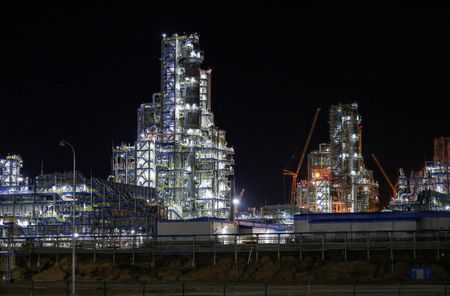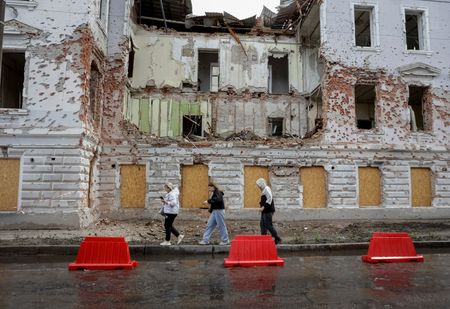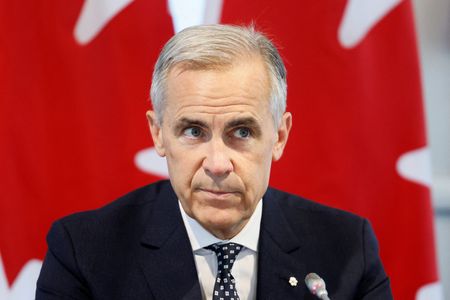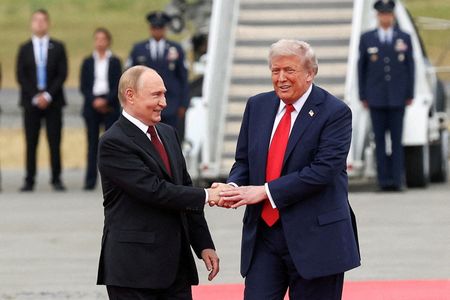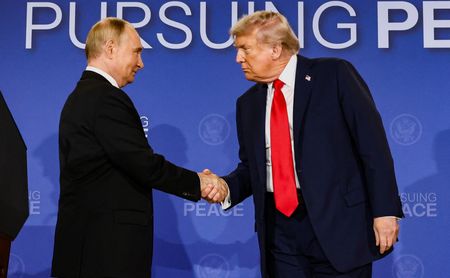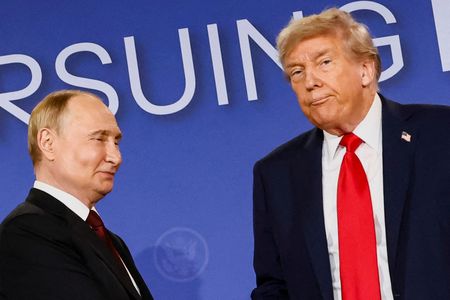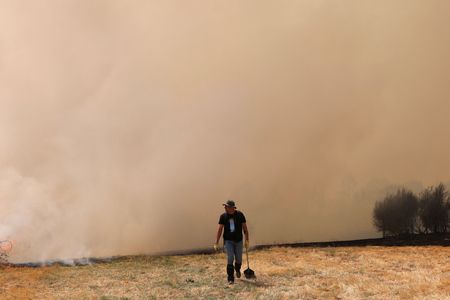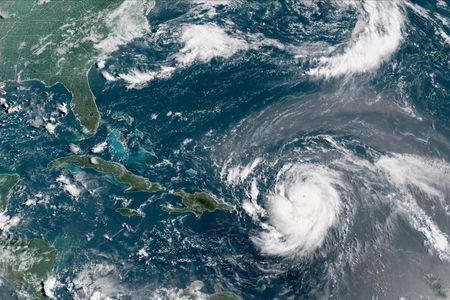By Kate Abnett and Lili Bayer
BRUSSELS (Reuters) -The European Commission will next month propose legal measures to phase out the EU’s imports of all Russian gas and liquefied natural gas by the end of 2027, it said on Tuesday.
The European Union vowed to end its decades-old energy relations with former top gas supplier Russia after Moscow’s full-scale invasion of Ukraine in February 2022.
The EU executive will present a legal proposal in June to ban remaining Russian gas and liquefied natural gas imports under existing contracts by end-2027, it said in plans published on Tuesday.
The Commission will also propose in June a ban on Russian gas imports under new deals and existing spot contracts by the end of 2025.
“Since February 2022, we’ve actually spent more money buying fossil fuels from Russia in the EU than we’ve given in aid to Ukraine,” said EU Energy Commissioner Dan Jorgensen.
“Obviously, that will not stand,” he said.
The U.S. is pushing Russia for a peace deal with Ukraine, which, if reached, may reopen the door for Russian energy. But while executives in some EU industries have signalled support for a return to Russian gas, Jorgensen said even if there was a peace deal, it would be unwise to rely on Russian imports again.
Kremlin spokesman Dmitry Peskov said excluding Russian energy was against the EU’s own interests.
“They reduce the competitive environment, preferring more expensive goods from the United States and other countries. One can only hope that the next generation of European politicians will evaluate the situation more soberly,” Peskov said.
Around 19% of Europe’s gas still comes from Russia, via the TurkStream pipeline and LNG shipments – down from roughly 45% before 2022.
Brussels has signalled willingness to buy more U.S. LNG to replace Russian volumes, which President Donald Trump has demanded the EU do to shrink its trade surplus with the United States.
A draft of the EU plan was previously reported by Reuters.
APPROVAL NEEDED
New EU legislative proposals need approval from the European Parliament and a reinforced majority of EU countries.
The EU has imposed sanctions on Russian coal and most oil imports, but not on gas due to opposition from Slovakia and Hungary, which receive Russian pipeline supplies and say switching to alternatives would hike energy prices. Sanctions require unanimous approval from all 27 EU countries.
The Commission did not specify what legal options it will use to ban Russian gas. Jorgensen said the proposals would amount to “force majeure” – an unforeseeable event that can release companies from a contract.
Lawyers have said, however, it would be difficult to invoke this without exposing gas buyers to penalties or arbitration. European buyers have “take-or-pay” contracts with Gazprom, which require those that refuse deliveries to pay for much of the contracted gas.
France’s TotalEnergies and Engie, which have long-term Russian gas contracts, declined to immediately comment. Russia’s two top gas companies, Gazprom and Novatek, did not immediately respond to requests for comments.
A spokesperson for German company Uniper, which was once Europe’s largest Russian gas importer and nearly collapsed after Moscow slashed supplies in 2022, said it no longer had Russian contracts, and would examine the EU proposals.
Owing to new LNG supply projects due online from 2026 in countries including the U.S. and Qatar, the Commission said phasing out Russian gas would have a limited impact on European energy prices.
The EU is also betting on renewable energy to slash its fossil fuel use.
The EU imported 32 billion cubic metres (bcm) of Russian gas via pipeline and 20 bcm of Russian LNG last year. Overall, two-thirds of this supply is under long-term contracts, and the rest uncontracted “spot” purchases.
The Commission will also propose trade measures on imports of Russian enriched uranium. Jorgensen said this would de facto mean a levy or tax.
(Reporting by Kate Abnett and Lili Bayer in Brussels; additional reporting by America Hernandez in Paris and Christoph Steitz in FrankfurtEditing by Tomasz Janowski, Bernadette Baum and Emelia Sithole-Matarise)

